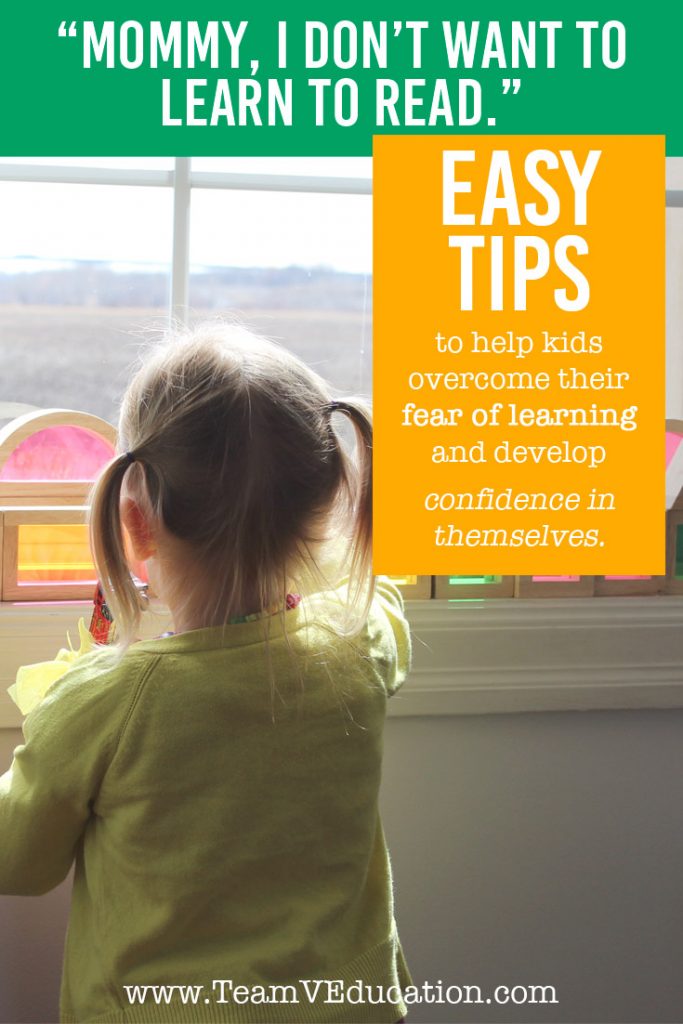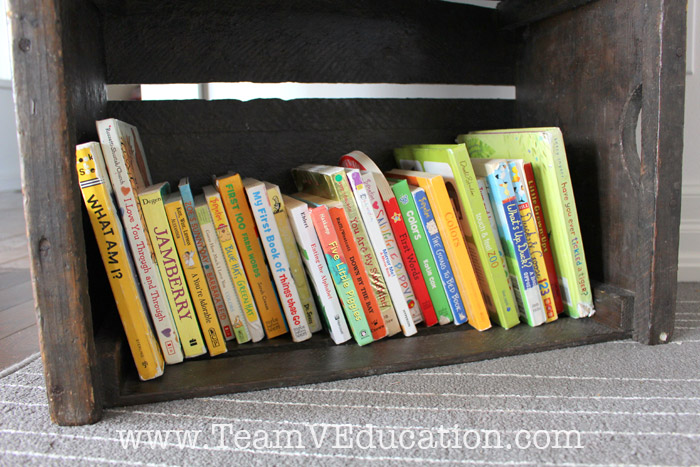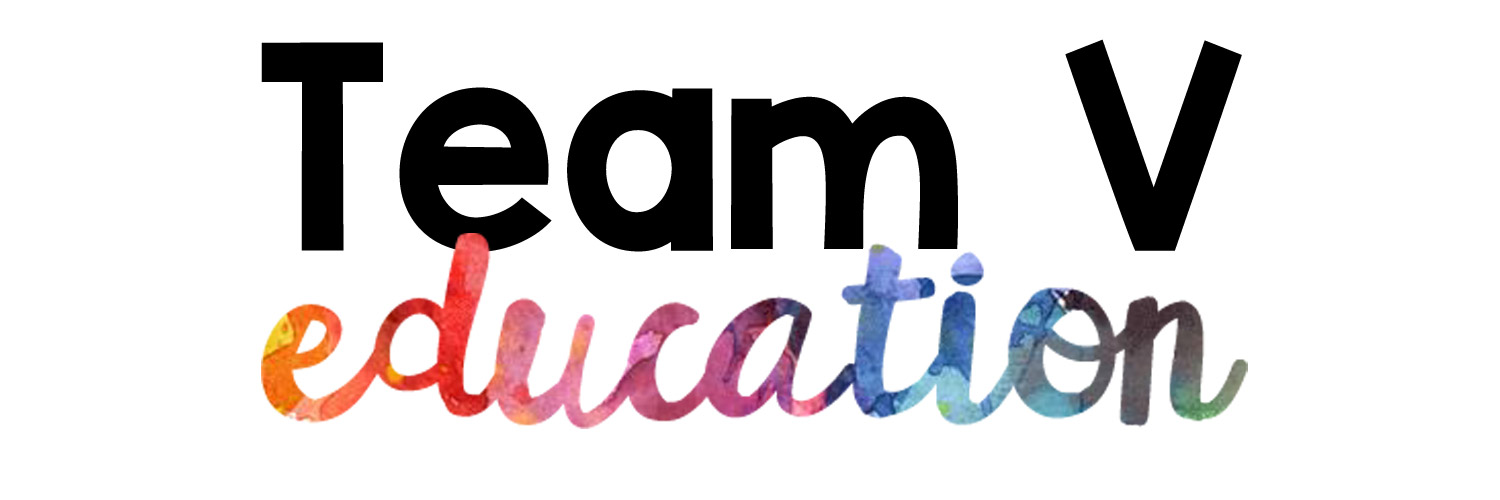Help Kids Overcome Learning Struggles and Develop Confidence
“My child doesn’t want to learn to read.” “How do I help them overcome learning struggles?”
Does this sound familiar? Should you worry?
Not just yet, because each child’s needs and interests are so monumentally different, PLEASE give yourself the freedom to let go of past expectations and to instead engage in the magic of learning as a natural process.

I bought into the teaching propaganda
I learned early on that the expectations I put on my own kids was driven by fear.
Headlines pop up all over Google and Pinterest when you search for early learning support:
“Read Before Kindergarten”
“What Your Child Should Learn Before Kindergarten”
“The Right Way to Teach Reading”
The list goes on.
So I bought into the propaganda.
My son NEEDED to know how to read before Grade One, or even Kindergarten for that matter (if I wanted to be a ‘really’ good mom).
My toddlers needed to know all their colours and shapes and numbers, and how to identify the names of letters, because why else would the stores advertise that handy dandy “LeapFrog Fridge Phonics” set?
(We actually loved that Leap Frog toy! It even had a permanent home on our fridge for years. I simply held it in higher esteem than was necessary.)
I am a teacher by trade, and for several years I primarily taught Kindergarten.
I had all the right tools: the worksheets, the training, and the knowledge.
But what I didn’t have yet, was a true understanding of my own child.
Let me say that again, because it’s so important to this journey of child-led learning.
I did not understand the needs of my own child
What I also didn’t understand was that despite all my best teaching and parenting efforts, all of that was about to change for the better, and all thanks to a slightly stubborn 5-year-old.
Seven simple words altered the course of our family’s entire belief system.
“I DON’T WANT TO LEARN TO READ.”
Whoa, burn that into my Type-A, curriculum-following, policy-loving heart.
I like to follow the rules!
I loved step-by-step curriculum.
And I absolutely enjoy making schedules, lists, and timelines!
As a result, “I don’t want to learn to read” was not on my timeline.
(You can read about my previously chosen curriculum here > Eclectic Kindergarten Curriculum
We were halfway through “Senior Kindergarten” and rocking our Jolly Phonics program.
I was enjoying a gentle, loosely structured day with my son, which included drills and rote memorization.
Please don’t get me wrong, I still adore Jolly Phonics and it’s multifaceted approach to learning letter sounds and words. It is still the main phonics program I use to this day for phonemic awareness instruction.
But “I don’t want to learn to read” was not on my schedule. I was not prepared for this blip.
*Deep breath* mama.
Have you ever been there?
“I hate school.”
“Learning sucks.”
“I can’t do that.”
“I don’t know what to write.”
“Reading is too hard.”
This isn’t the fault of our children. They actually love to learn!
Truly.
Remember that stubborn 1-year-old learning to walk? She loved that and eventually succeeded. Or the toddler whose favourite words were: “Me do it.” He loved that. (Even if you didn’t!)

Help kids overcome learning struggles
We were born to love learning.
We were born to learn and to create; to engage, and to share our thoughts and beliefs.
(Heck! That’s what I’m doing with you right now.)
So while my 5-year-old rocked my world with those seven piercing words, I had to realize that it was not that he didn’t want to learn how to read.
He just didn’t want to learn how to read RIGHT NOW.
The timing was all off.
Here is what he was actually enjoying:
Snuggling with mommy while she read to him.
Reading the pictures and retelling the story in his own words.
Choosing books for daddy to read to him after work.
He was enjoying the process of learning to read, but in a different fashion.
At this point in his development, reading was more of a social endeavour than a learning task.
My son was observing the intonation of our voices, and the singsong way that the characters in his stories spoke to one another.
What he did NOT want was paperwork. Or drills. Or teacher-directed learning.
He just wasn’t ready for that.
I have a daughter who LOVES those things and thrives when I provide them! But he wasn’t that kid yet.
Remember what I said earlier: I did not understand the needs of my own child.
I suppose he just wanted to enjoy this process of being with mommy and being read to. Once in a while my structured teacher nature would slip back in and we’d talk about some of the sounds in his books. A little bit here and there wasn’t too bothersome for him and I was able to get away with it. But for the most part, he just wanted me to leave him alone.
My child didn’t want to learn to read, but…
Guess what happened later on?
That summer before Grade One I found him on the couch one day, looking through a book.
Mommy: “Hey bud, what are you doing?”
5-Year-Old: “Reading.”
Mommy: “Reading, eh?”
(Nah…he couldn’t actually be reading, could he??)
Mommy: “Do you think you could read it out loud for me?”
5-Year-Old: “Sure.”
He proceeded to read the entire book to me!
At that moment it was as though fireworks exploded in the sky and a plane flew high above with a banner that read: “Stop trying so hard mama, just follow his lead.”
Okay, okay, I’m listening now, dear son.
My advice for parents of young children
Now to you, dear mom or dad, lean in a bit and follow me to the end: This is just one child’s story. One experience.
Some of my other children need plenty of one-on-one support and they actually love the Jolly Phonics paperwork and songs and all that beautiful teaching ‘stuff.’
That is okay, because that is me understanding THEIR needs in this area of learning.
They excel in different ways, because they’ve been created completely differently from their other siblings.
So how do you “Let Go” without losing your mind?
It’s a delicate balance and takes some getting used to.
As I wrote that, I imagined Felicie from the “Ballerina” movie. My daughter and I love that dance battle scene (and I love how cartoons can make anything seem like it would be possible to reenact in real life).
I see Felicie balancing on the theatre chairs as she battles Camille in a last-ditch effort to prove her worth as a dancer. Darling Dora announces to everyone, “BATTLE!” and they all rush in to watch. Tragically, Camille pulls Felicie’s braid and Felicie takes a hard tumble. But with a shake of her head and a look that means business, Felicie rises to meet her competition once again. But do you also notice the look on Camille’s face as they stare one another down? I imagine her thinking:
“So you think you’re up for this challenge? Give it all you’ve got girl.”
Children’s needs vs. our desires
Sometimes I am Felicie, determined beyond measure to help my children reach their God-given potential, while precariously balancing on the tip of their talents, desires, and developmental abilities.
My kids look at me: “So you think you’re up for this challenge? Give it all you’ve got mom.”
And I do!
I dance around their needs, providing opportunities and materials that they can use in their journey. I am both determined and elegant as I help my children navigate their learning journey.
And other times I’m like Camille. I pull at my children’s metaphorical hair, dragging them down with my own expectations and desires.
I want to win.
I want to be that mom that has a kindergartener reading novels, or children who are all-star athletes by the age of seven.
These too are good things. But they don’t have to be our things. Or your things.

You might have the 7-year-old who wants to read all day, but has no interest in baseball. That’s okay. Just make sure they get some fresh air once in a while.
Or you might have the 5-year-old who is a rockstar with a hockey stick, but struggles to read. No worries. Snuggle up with some good hockey stories and read to her, while using a simple reading program that will provide daily gentle instruction, when she is ready.
Policy makers and educational experts are fantastic. They provide guidelines to help direct our children’s learning in school and beyond.
But you are the gatekeeper to your home.
What does it mean to be a “gatekeeper”?
You are the protector of your children’s gifts and talents.
You mom and dad, you have been given this beautiful task of raising children that represent your family’s values, that excel in their own ways, and that navigate life with confidence.
And in order to be confident in life, you need to have something that you’re confident in!
If I would have kept pestering my son to read, we would have both been frustrated.
Instead, we spent a lot of time doing art and building Lego structures, which we both love!
He is confident in creating.
And by giving him the space to explore his own passions at that age, I believe that I allowed him the peace to learn to read in his own timing.
You have that ability now too.
You may pour into those talents that will develop confidence in your children.
Trust your instincts, give opportunities to learn, and also know when to take a deep breath, step back, and snuggle on the couch instead.
Let’s summarize
- You might think you need to help your child overcome a hate for learning.
- Each child’s needs and interests are different!
- Learning is a natural process.
- We were born to learn and create.
- Provide opportunities and materials to help your child in their learning journey.
- You are the gatekeeper of your home.
- Give space to pursue passions so that confidence builds!
- If all else fails, snuggle on the couch.
Mom and dad, it’s you who understand the needs of your child! Stay positive and encouraging.
Are you up for the challenge? Give it all you’ve got!

Sorry, the comment form is closed at this time.